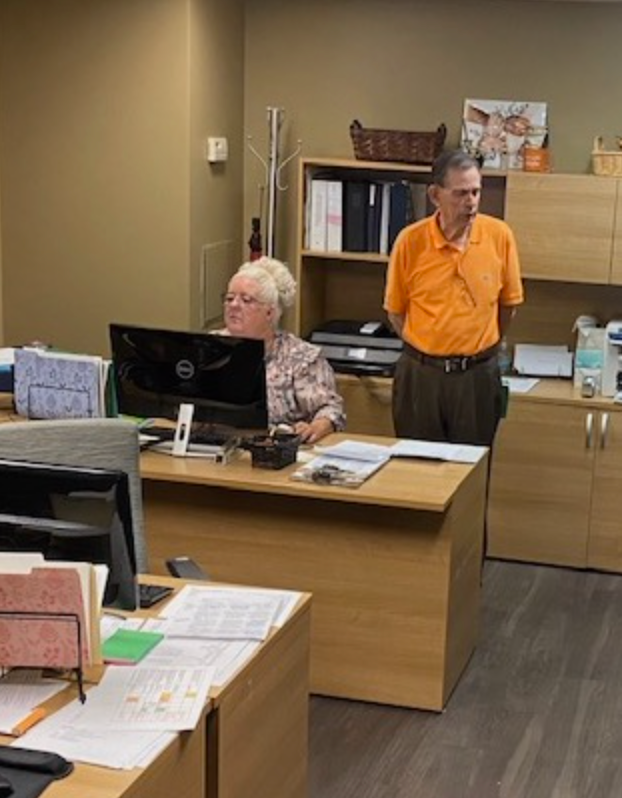Decatur Emergency Assistance Ministry (DEAM)
Spotlight Series contribution by Douglas Cumming
In the pretty courtyard of dogwood trees on the ground floor of Holy Trinity Parish facing Sycamore Place, Decatur’s hungry and dispossessed arrive one or two at a time for help.
They are welcomed as expected guests.
Most have made an appointment with DEAM – Decatur Emergency Assistance Ministry. A greeter will take their names, then another volunteer will lead them into the pantry to “shop” for what they need, or help with rent or prescription bills. Unhoused people can pick up a meal in a paper bag.
DEAM is a consortium of local churches that operates here from 9 a.m. to noon on four weekdays (closed on Wednesdays for supply deliveries). Some 60 volunteers make it work, including a number from Holy Trinity Parish. But DEAM could always use more volunteers, says HTP parishioner Pete Pfeiffer, the treasurer of DEAM.
DEAM began in 1977 with a push from two women, the Rev. Dorothea Gatlin of Decatur First Baptist Church and long-time public school teacher Mary Leila Honiker of Decatur First United Methodist Church. Local church ministers recognized the need for a more coordinated system of help for families with emergencies. In April 1984, it moved from the Lutheran Church of the Messiah into Holy Trinity, which has remained its home (for $1 a year) ever since.
The need is great, but seems at least manageable under DEAM’s well-run operation. In 2022, the agency provided the following services, according to Pfeiffer:
- Food ($41,400 worth), clothing and personal hygiene items to nearly 5,000 individuals.
- Emergency utility assistance to 910 households. The maximum grant was $750, with extra funding during the COVID-19 pandemic, but is now $500.
- Emergency housing assistance totaling about $10,000 last year. None is available this year, without the pandemic funding it had last year.
- Emergency prescription costs for 182 individuals with insurance gaps or no medical insurance.
Two women are the only paid staff, and they get more from the personal satisfaction than from per-day pay, a total of $19,315 plus benefits last year. Victoria Carter, the office manager, said starting as a volunteer after her husband and mother died in the same year saved her life.
“To me, it’s a privilege to be in a position to help,” she said. She also appreciates having the best group of people she’s ever met in her life. “They not only love the community. They love each other and love doing their work.”
Last year, $124,000 came in from the 19 churches in the consortium. A little less than that came in from individual and corporate donations. In addition, DEAM received in-kind donations, such as groceries set out on people’s front stoops – the Porch program – and had an $8,000 grant for pandemic-related assistance. That grant is gone, and other sources are expected to shrink this year, Pfeiffer said.
The way DEAM functions, with clients making appointments and choosing what they need in their emergency, “there’s no gaming the system,” Pfeiffer said.
“As we learned during the pandemic, the need here is far greater than what we give.”
"As we learned during the pandemic, the need here is far greater than what we give."
Pete Pfeiffer, DEAM Treasurer & HTP Parishioner


